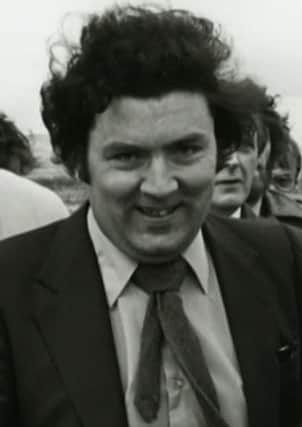Hume taking stock of position afterSummit: Jim Prior


A previously confidential minute of a cabinet meeting that took place on November 29, 1984, reveals Mr Prior told colleagues: “The leader of the Social Democratic and Labour Party (SDLP), Mr John Hume, was taking stock of his position, which was a difficult one.”
The Irish Government had just failed to secure arrangements for joint authority in Northern Ireland. Thus, as Mr Prior, explained: “The Unionists were devoting more time and energy to rejoicing over what they regarded as a successful outcome to the Anglo-Irish Summit than to addressing the political problems, which Northern Ireland faced.”
Advertisement
Hide AdAdvertisement
Hide AdA brief discussion of the cabinet, which included Michael Heseltine, Geoffrey Howe, Nigel Lawson, Tom King and Willie Whitelaw, concluded there could be no negotiations with nationalists who did not pledge allegiance to the United Kingdom.
The minute also says the British Government could not be expected to “heal wounds, which were largely self-inflicted.”
Nonetheless, Mr Prior asked if “soothing language” could be used to assuage Dublin’s “worry, concern and anger” after the summit, without diluting London’s position. The cabinet merely took note.